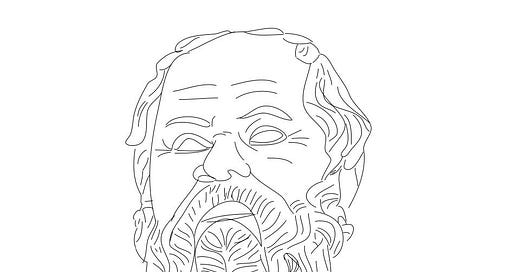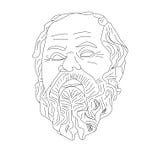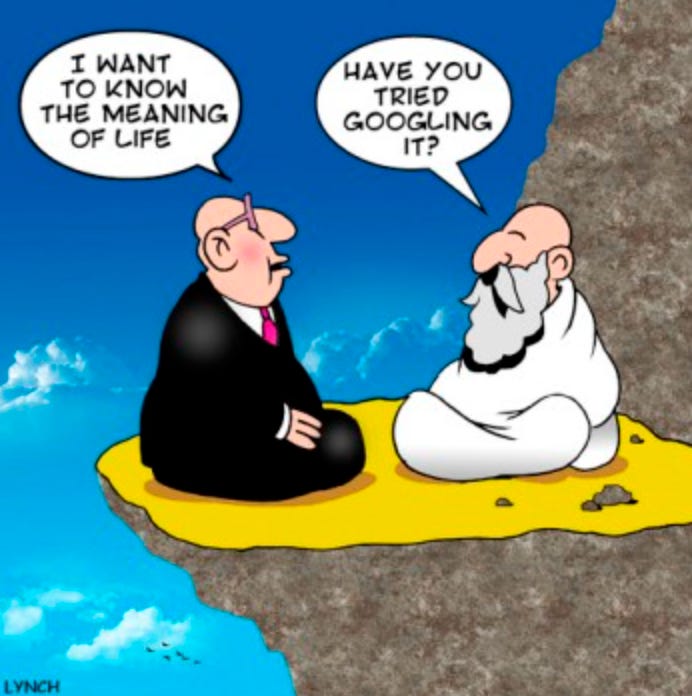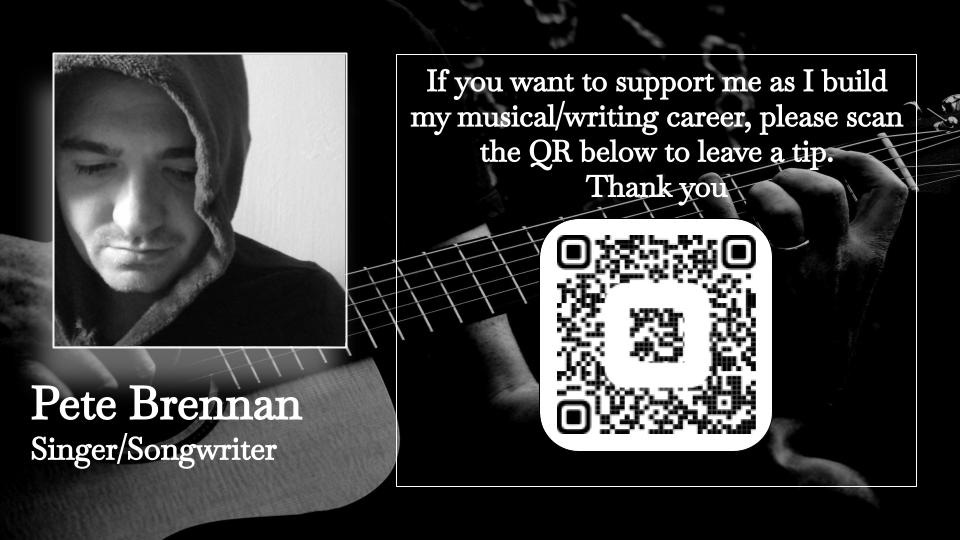This is the second recording I have made/uploaded of this song. The first version was poorly recorded using my cheap microphone/equipment and the quality of that track left an awful lot to be desired. It had the ‘buzzing’ or electrical hum that always comes with cheap microphones and was a feature in all my live recorded audio for a while.
Fixing this issue has been my number one priority as a musician as I want to incrementally improve the audio quality of the tracks I release on Substack month by month. The plan is to start releasing radio quality tracks within a couple of years and make Substack my main point of sale in terms of my original music and myself as a musician.
Music fans these days expect (perhaps unknowingly) a well recorded, well mixed and well produced final product like the songs they hear on the radio/streaming. Their ears have grown accustomed to a certain standard of professionalism, quality and polish in the music consume. I am trying to move in that direction but, like I said, it’s in baby steps. And as long as I’m moving forward, well… that’s something, at least .
As well as incrementally improving my home recording equipment, I’m trying to use all the knowledge about music production that I have gained from the last four years that I spent in music education to become a fully rounded, self sufficient musician.
I’ve recently purchased a decent microphone, a RODE NT1a, and have done a little experimenting. I decided a good way to measure my ‘baby steps’ improvement strategy would be to re-record previous songs so I can contrast and compare them to see how much progress I have made. It also allows me to try and bring these already released songs closer to my original vision and unlock as yet unrealised potential from them.
The comparative quality of this new microphone to my old ones is night and day and I am much happier with the guitar and vocal recordings I am making now. I’m still experimenting with placement and levels, but I’m getting better.
The sensitivity of this mic also exposes some of the errors in my guitar playing (finger sliding, moving the body around, hitting chords too heavily, gripping too hard), as well as other bad recording habits I have when recording (clothes rustling, breathing too heavily, tapping my feet) so I’ve been forced to take more care than I’m used to to eliminate these errors. This is a good thing and part of the learning process.
But what about the song?
Below, I’ve republished the explanation and origin story of this song from the old post because that stuff hasn’t changed. I hope you enjoy this song in it’s slightly improved form.
The song is called ‘The Priest and the Philosopher’ and it started out as a different narrative story-song but evolved into something else entirely since. I wrote it as part of my final 3rd year university project and the inspiration came from a few seemingly disjointed sources but primarily from the philosophy that I was reading as research (my portfolio was based on the idea of drawing lyrics and themes from classical western philosophy).
Firstly, it was inspired by the university that I attended repeatedly asking me (and the other students) to define my ‘purpose’ or to find my artistic ‘voice’ or ‘soul’ or other such quasi-spiritual concepts. I found this irritating to say the least as I am a hard-determinist, material atheist who has no time for such ‘fairytales’. I understand what they were attempting though and the reasoning. Most students they were dealing with were still very young and ‘finding themselves’ so this kind of ‘mindfulness’, ‘wellbeing’, ‘goal oriented’ approach to figuring out one’s place in the world (akin to the endless supply of this stuff on YouTube) has some utility for these kids.
But I was a mature student with a family at home. Purpose, or a reason to get up in the morning was not something I was ever lacking. I have a son to raise and regardless of how fulfilled (or not) I have felt during the highs and lows of my life, I always knew what my prime objective was: that boy.
I also (as a hard line atheist) resonated hard with the French Existentialist philosopher Albert Camus’ essay ‘The Myth of Sisyphus’ and his theory of Absurdism. I won’t get too deep into it here (although I’d love to) but essentially I agreed with Camus when he inferred that there is no ‘purpose’ to life, at least in the sense that a theist might suggest; a cosmic purpose that exists outside and separate from ourselves. A grand, universal plan.
Camus essentially suggests that one must find something (perhaps arbitrarily) to live for and do so. To accept the fact that since life has no definitive meaning gives each of us the freedom to choose something to live or fight for. For some it may be family, for some religion, or football, or music, take your pick. It’s seeing the absurdity of it all and embracing that absurdity with open arms; imagining oneself happy.
I also consider the question ‘What is your purpose’ as a logical fallacy and circular as it presupposes within its phrasing that there is, or should be a purpose at all.
Even if I were to concede to the point that having a ‘purpose’ (no matter how arbitrary) is beneficial to one's life and that that assertion could be demonstrably proven, that still would not justify claims that one needs one or should have one as is ‘begged’ in the aforementioned question. In my estimation, that would be a case of ‘getting and ought from and is’ as David Hume writes about in his work A Treatise of Human Nature (1739–40); ie, ‘Purpose is beneficial (premise) therefore, it is necessary for one to have a purpose’ (conclusion is a non sequitur).
That gave me the idea for the refrain at the end of the chorus (it’s not really a ‘hook’) ‘Why’s it have to mean anything at all?’, and from there I built out the song.
The first verse was inspired by the endless hours I have spent watching Christopher Hitchens debating various theologians and Christian apologists following the release of his book (one of my favourites) GOD IS NOT GREAT in 2007. Since discovering his work I have greatly admired the man, both his writing and how he would expertly refute the arguments of his interlocutors, particularly when they claimed that reference to the supernatural was necessary to experience the numinous, the transcendent or to be moved by art.
You can think of the titular ‘Philosopher’ as Christopher Hitchens, or at least inspired by him, and the ‘Priest’ as any of the apologists that he danced circles around with his knowledge, prose and wit.
The final verse was a verse from a previous song I had written that I cannibalised for this song (like John Lennon and Paul McCartney combined a song they had each written individually into one, which became ‘We Can Work It Out’). The rest of the song was so mediocre that I have completely forgotten it, only this verse was good enough to survive my built in quality filter.
The original song came from an ‘indie’ tune I wrote while I was driving home from a gig at 2 in the morning and feeling unfulfilled by my music career. It was a ‘tribute’ band. I had played the same songs every weekend all summer and had grown to hate every single one. Songs I had loved since childhood. Songs I grew up with.
I had become disillusioned with the ‘pub band’ and ‘function band’ model of playing covers to weekend music fans; throwing red meat at the crowd and watching them go crazy. They loved those songs so much; we played up to them, had them eating out of the palm of our hands and I felt like a fraud.
So here is our old friend the ‘head’ versus ‘heart’ dichotomy again. My head saying ‘purpose’ is an illusion, a masquerade, and my ‘heart’ undeniably suffering from a distinct lack of it. I realised there was a cognitive dissonance there, a contradiction, a conceit.
This reminds me of musical comedian and genius Bo Burnham, who often in songs such as ‘Handle This’ will break the satirical theme of the song in the bridge, dropping any conceit to reveal a deeply honest vulnerability that was previously masked within the metaphor of the song and re-contextualising it.
For this reason, I didn’t adapt the verse to fit in with the new song, rather I kept it as it was (strummed like a Folk/Indie tune) with the intent that the juxtaposition would signal a ‘break’ from the metaphor and into the veil of honesty.
That’s it. Not much else to say about this song other than it is what I would call a ‘Songwriter’s Song’. My favourite songs by any artist are normally obscure album tracks with clever lyrics and a deeper message, rather than the well known ‘hit’s or ‘singles’ by the same band/artists. Songs that (I’d wager) are the ones that mean the most to the artists, and will continue to do so over a longer period of time. Songs that lack mass appeal for whatever reason: too clever or too intricate, or something that requires either inside musical knowledge or a close attention that the layman has no interest in taking. Songs like ‘Older Chests’ by Damien Rice, ‘Magic Pie’ by Oasis or ‘Hero Of War’ by Rise Against. I recommend all three to any songwriters out there, and I welcome your own examples in the comments as I love discovering new songwriting gems.
I’ve posted the lyrics to ‘The Priest & the Philosopher’ below should anyone wish to read exactly what I was mumbling about in the song.
Thank you for reading/listening
Pete Brennan (Singer/Songwriter)- [aka The Common Centrist]
The Priest and the Philosopher
Crossed swords under a dream
They lied their truths on pedestals
And argued what it means
To live under a banner and
To build the city just
What names they oughta give their gods
And what it means to love
Or how the human animal
Can see beyond the veil
Shine light on the blinded eyes
like shadows in the cave
They’re tryna find an answer
Something fragile, Something good
But maybe there ain’t nothing more to know
What does it mean?
We’re just chemicals colliding
What does it mean?
That the universe decided
Who we would love,
And what we would be
No-one ever stops and wonders…
Why’s it have to mean anything at all?
The jester and the King
Both heed the dawning when it rings
‘Cos no one lives beyond the Reaper’s eye
The Pauper and the Dame
To all the vultures taste the same
And Father Time don’t wait for you to write
And maybe there’s a meaning and a reason for it all
The best of us can never say for sure
But what would really change if we could see the strings at play
Would it make a difference anymore
What does it mean?
We’re just chemicals colliding
What does it mean?
That the universe decided
Who we would love,
And what we would be
No-one ever stops and wonders…
Why’s it have to mean anything at all?
I’ve played classic rock in empty bars
Every weekend for so long
Same old twenty songs …. Everybody sing along
It’s like I’ve sold my soul for ‘Wonderwalls’ and driving home alone
No-one on the road but me
What does it mean?
We’re just chemicals colliding
What does it mean?
That the universe decided
Who we would love,
And what we would be
No-one ever stops and wonders…
Why’s it have to mean anything at all?
Why’s it have to mean anything at all?
Why’s it have to mean anything at all?





















Share this post